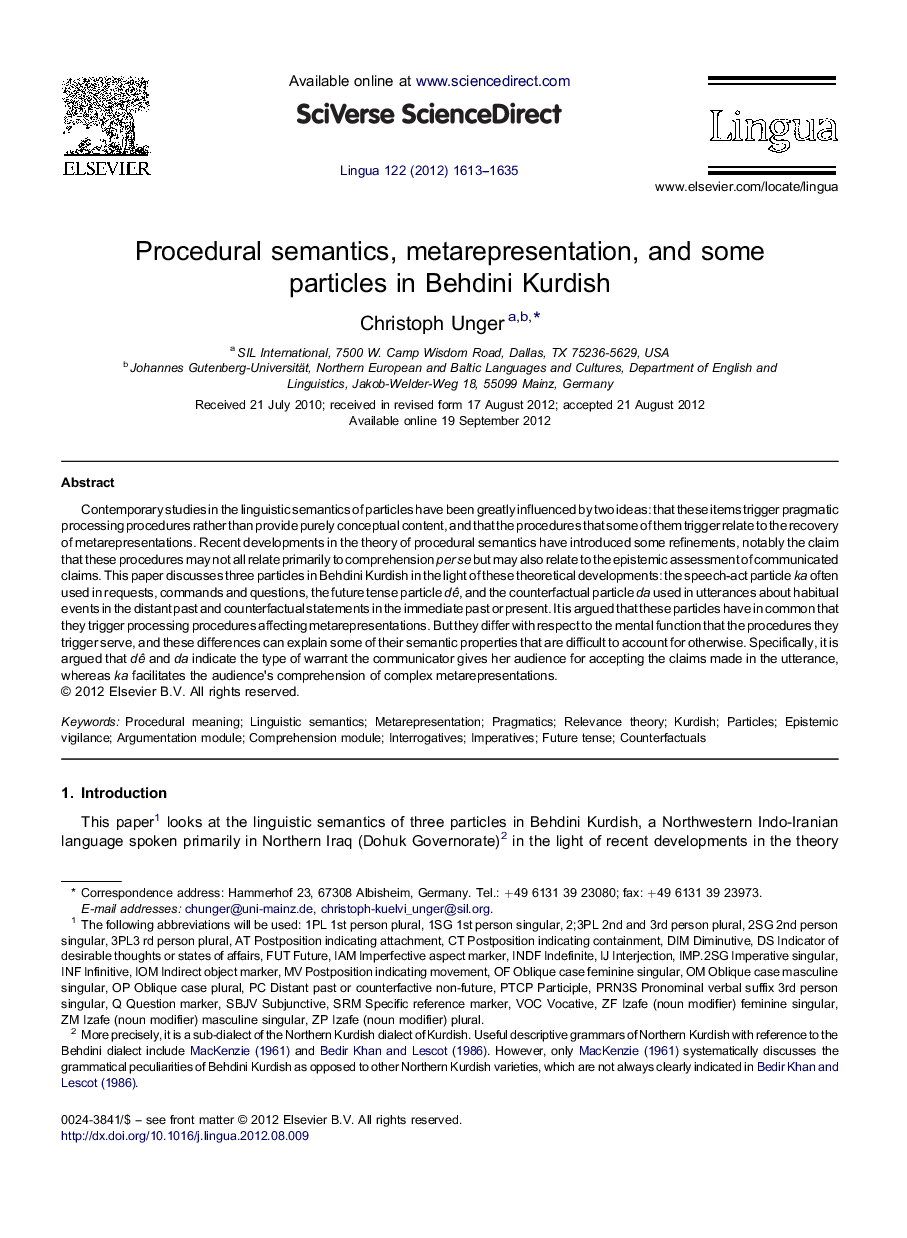| Article ID | Journal | Published Year | Pages | File Type |
|---|---|---|---|---|
| 935490 | Lingua | 2012 | 23 Pages |
Contemporary studies in the linguistic semantics of particles have been greatly influenced by two ideas: that these items trigger pragmatic processing procedures rather than provide purely conceptual content, and that the procedures that some of them trigger relate to the recovery of metarepresentations. Recent developments in the theory of procedural semantics have introduced some refinements, notably the claim that these procedures may not all relate primarily to comprehension per se but may also relate to the epistemic assessment of communicated claims. This paper discusses three particles in Behdini Kurdish in the light of these theoretical developments: the speech-act particle ka often used in requests, commands and questions, the future tense particle dê, and the counterfactual particle da used in utterances about habitual events in the distant past and counterfactual statements in the immediate past or present. It is argued that these particles have in common that they trigger processing procedures affecting metarepresentations. But they differ with respect to the mental function that the procedures they trigger serve, and these differences can explain some of their semantic properties that are difficult to account for otherwise. Specifically, it is argued that dê and da indicate the type of warrant the communicator gives her audience for accepting the claims made in the utterance, whereas ka facilitates the audience's comprehension of complex metarepresentations.
► Three particles of Behdini Kurdish are analyzed as triggers for metarepresentations. ► The particle ka facilities the easy construction of complex metarepresentations. ► The particles dê and da indicate that the audience cannot verify the eventuality. ► Additionally, dê indicates speaker commitment. ► Additionally, da affects the warrant the speaker has for her claims.
